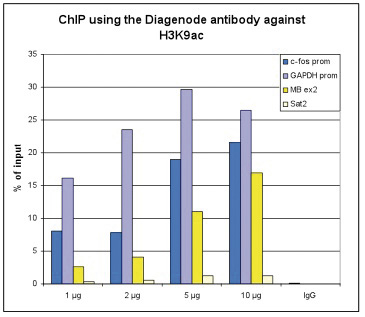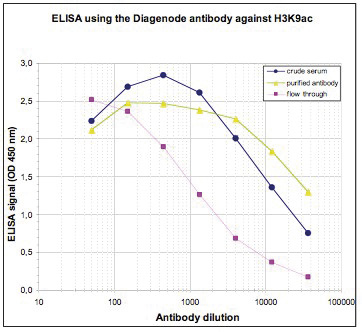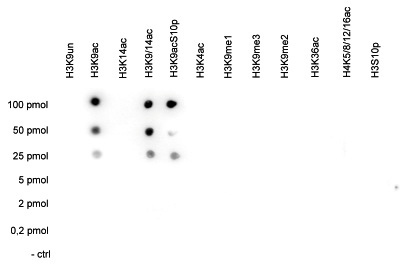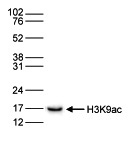Figure 2 ChIP results obtained with the Diagenode antibody directed against RARA
ChIP assays were performed using HeLa cells, the Diagenode antibody against H3K9ac (cat. No. pAb-177-050) and optimized PCR primer sets for qPCR. ChIP was performed with the “Auto Histone ChIP-seq” kit (cat. No. AB- Auto02-A100), using sheared chromatin from 1 million cells. A titration of the antibody consisting of 1, 2, 5 and 10 μg per ChIP experiment was analysed. IgG (2 μg/IP) was used as negative IP control. Quantitative PCR was performed with primers for the promoter of the active c-fos (cat. No. pp-1004-050) and GAPDH genes, used as positive controls, and for the coding region of the inactive MB gene (cat. No. pp-1006-050) and the Sat2 satellite repeat, used as negative controls. Figure 1 shows the recovery, expressed as a % of input (the relative amount of immunoprecipitated DNA compared to input DNA after qPCR analysis). These results are in accordance with the observation that H3K9 acetylation is enriched at the promoters of active genes.









